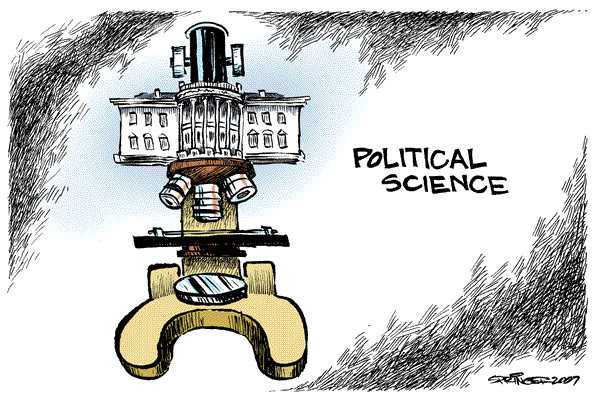Mashal Ijaz, BSc. Politics and International Relations ’21
Why conduct political science research?
It is important to start by asking the fundamental: why conduct political science research? If your passion is quantitative political science research, that may not be a very important question. However, it is always worthwhile to put in perspective the rationale behind wanting to conduct ‘good’ political science research and, more importantly, what makes political science research ‘good’. The most obvious reason to learn how to conduct political science research is so that you know what to look for in the works of other researchers. This means you will be able to pick apart, dissect and analyse for yourself whether studies hold up to scrutiny once you apply your research knowledge. Obviously, this can be helpful in course readings for other modules, but it can also be very useful when others try to convince you of a specific viewpoint using research. You will know exactly what to look for when trying to gauge the quality of their research.
Identifying a question
According to Popper (1968), “there is no such thing as a logical method of having new ideas”. That is, if you are trying to develop a research question, there is no step-by-step process to follow which will result in inspiration for a great idea. However, instead of waiting for inspiration to strike randomly, we can begin by reading the literature around a specific topic we might be interested in. In so doing, we attempt to locate the gap or hole in the literature that we can then try to fill by conducting research. This ‘gap’ need not be a revolutionary idea which changes the field. It can be an identification of a new outcome variable for a specific phenomenon, or even simply a new conceptualisation, description or measurement of it. It could also be a new explanatory variable which has an effect on a known outcome. It can be a new moderator or mediator i.e. you find that there may be a different mechanism through which the explanatory variable affects the outcome variable (these will be discussed in more detail in future articles). Another approach could be transporting a study conducted in a specific region to a different area with the logic being that it will bring to light some new insight about a specific phenomenon.
Research questions can be descriptive – they ask ‘what’ questions, such as exploring the particular features of a political institution, idea etc. Research questions can also be causal. These are, arguably, the more interesting ones but also more difficult to conduct. They involve analysing the effect or mechanism behind two variables – the ‘why’ questions. When asking causal questions, it is usually best to avoid trying to find all the reasons behind a specific phenomenon. For example, if you ask, “Why did Clinton lose the 2016 election”, this will inevitably cause you some trouble since it is seemingly impossible to try and identify and measure all the explanatory variables for a specific outcome. Instead, we can ask “What was the effect of misogynistic remarks on political candidates in the 2016 US general election?” In this way, we are identifying and separating a specific explanatory variable and trying to measure its effect on the outcome.
These are a few helpful ways of thinking about how to begin formulating your own research question. However, at the end of the day, as Geddes (2003) points out, you need to have a certain level of genuine curiosity about the political and social world.
From theory to operationalism
Political science is not just about the facts. Since the political world is constantly changing, we need to understand how we move from causal theories to scientific knowledge. Political scientists develop and test theories; once developed, we can restate them into testable hypotheses. As we move from causal theory to hypothesis, we move from general statements about how we think the world works to a more specific statement about the expected relationship in the real world. Therefore, the next logical step after we have identified a political science question is to conceptualise and operationalise our variables. A great way to understand this is using Sartori’s (1970) ladder of abstraction. This framework attempts to understand concept formation through a logic of appropriate comparison. A concept is made less abstract and more specific when we add qualifications. For example, ‘political ideology’ is a ‘high level’ category which is more concretely conceptualised as an example of a political ideology, such as ‘nationalism’. This can be made more specific by the addition of attributes, for example, ‘alt-right white nationalism’. In this way, we can conceptualise broad theoretical concepts into more concrete variables which we might have a way of measuring. Therefore, a question such as “what is the effect of the internet on politics” is not a ‘good’ research question because of the abstract concepts involved. It is better to conceptualise ‘internet’ and ‘politics’ and try to be more specific in the hopes that we can measure these variables.
Key definitions:
- Variable: an entity that takes on different values (not a constant)
- Outcome variable, Y: (dependent) variable that you are trying to measure
- Explanatory variable, X: (independent) variable that is being manipulated to observe the effect on the outcome variable
- Mechanism: a causal explanation for a relationship
- Operationalisation: means by which a concept can be verified and measured.
- Inductive reasoning: deriving theories from observing empirical reality
- Deductive reasoning: develop theories and test them against empirical reality
- Positivism: there are objective facts that are observable and verifiable in the same way by different individuals
- Constructivism: facts are socially embedded and constructed. Reality is subjective, and we cannot claim to objectively observe reality.
- Normative: asks what ought to happen and why
- Empirical: asks what happened, happens or will happen, and why
Image credit: Runner Up – 2007 Science Idol Cartoon Contest. Springer Creative. https://www.springercreative.com/?cartoon=44&search=men





